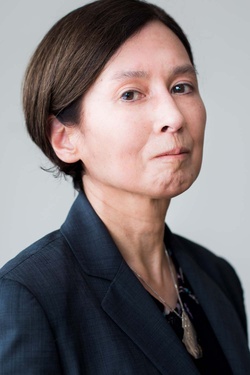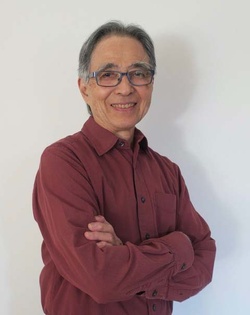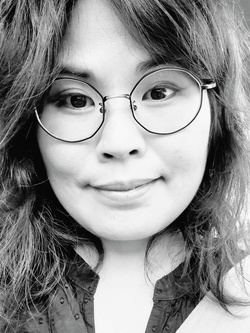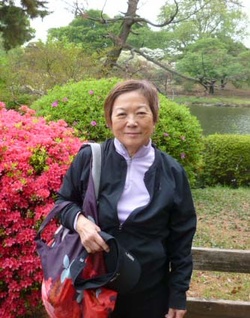Happy 80th Anniversary of the 1942 Internment?
As I reflect on who to contact for this article about this auspicious anniversary, I think mostly about those who are gone: mom and dad, aunts and uncles, who were innocent kids back in 1942. My Ibuki grandparents who lost their Strawberry Hill farm. On a 2019 visit to that location, it pained me to see the Ibuki farm paved over at a busy Surrey intersection at Scott Road now occupied by BC Hydro towers and two large plazas that have nothing to do with the Ibukis in 2022 who all now reside in Ontario.
Of course, each of our internment stories are different: a couple of the most poignant that I recall are from Nisei that I knew when living in Japan. Lloyd Kumagai and Tak Matsuba were as Canadian as you or I when their families were exiled to wartorn Japan. Sure, they visited Canada after the war, but it was never again home for them. On this anniversary, I’m also thinking about the recent passing of niseis Kay Mende, Uncle Jits, cousin Robert Takeda as well as survivors like George Doi (Langley, BC), Susan Maikawa (Collingwood, ON) and aunts Jean, Tomi and Lorna (Toronto).
In ongoing discussions in Canadian media about important Indigeneous and anti-Black racism stories, I am always struck by the parallels with our own Japanese Canadian (JC) experience of systemic racism, human rights abuses, stolen property and cultural erasure (e.g. internment). Perhaps these issues have more currency in BC, but here ‘east of the Rockies’ I can’t remember the last time that I heard anything in the media about us.
As a community, in these waning months of 2022, I’m hoping that more JCs will speak up about this anniversary. Now is an opportune time, surely, to educate young Canadians about this dark chapter of Asian Canadian history. Ironically, even our elders, too busy these days taking care of the sick and dying, might need reminding about this anniversary. I wonder sometimes too if we JCs as a community have willed away the internment as if it was just something that we had to go through as a community to become Canadians? I wonder if that shikataganai mantra and feelings of shame (haji) have finally taken root and silenced us as the outcome of that ‘model minority’ trope would have it.
My Ibuki and Hayashida grandparents lost everything in 1942. I will never forget that our democratic government did that to its own people, to us.
My parents never put a happy face on the internment. They were just kids themselves and the few stories they shared were sad ones of loss, mostly. One happy one is of Mom picking strawberries. Apparently she was pretty good at it. I’ve always suspected that the post-war period was the toughest for them. Dad never finished high school. I don’t think that he ever liked school. He joined the army and served in Germany. Mom, on the other hand, took great pride in completing high school in Hamilton and took part-time waitressing jobs to pay for those expenses. What they accomplished was by their own gumption. There was no family privilege to fall back on. They worked hard and never complained, even when they should have, persevering through their own substantial hardships, trials and tribulations, sacrificing heart and soul to make sure that their four kids went to university and never went without. That chapter closed with the passing of dad in 2020.
As tribute to all of those who we dearly miss and mourn then, I asked members of our community to comment on the importance of remembering this anniversary for all survivors and for all generations to come.
* * * * *
Kirsten Emiko McAllister, Professor at Simon Fraser University (Vancouver, BC.)
In the town where I grew up in the territories of the Snuneymuxw Nation, if anyone spoke about internment camps, other residents would typically defend the government’s use of the War Measures Act to strip Japanese Canadians’ citizenship rights and classify them as enemy aliens, arguing they were threats to national security. Community activists worked tirelessly to challenge these entrenched beliefs. Their efforts culminated in the 1988 Redress agreement.
But as critics today argue, by agreeing to sign the Redress agreement, the government was able to uphold Canada as a society that “ensured equality and justice for all”. In the resulting version of the past, the state became a champion of democracy. But Canada’s ongoing genocidal policies against Indigenous peoples, its structural racism against Black communities, temporary foreign workers’ programs, and investments in mining and oil prove otherwise.
Our history of community activism teaches us that how we remember “internment” is political. It is not a dark chapter in the past that state redress can resolve through contrition and funding. Instead, the past links us to injustices today and makes it possible to work in solidarity with others seeking to build sustainable, just societies across different borders.
*Prof. McAllister's research has focused on the politics of memory and Japanese Canadian internment camps in addition to other contemporary forms of displacement, dispossession and detainment.
* * * * *
Norman Takeuchi, Artist (Westwold, BC; Ottawa, ON)
The Well
In 1942, my parents and my two brothers and I were forced to move to a small community in the Okanagan called Westwold. One of the things I recall from that time was how we got water. The only source was a well some distance away, so in order to bring the water to the house, we placed a metal, galvanized tub onto a small wagon and pulled it along a narrow, bumpy footpath to the well. This was a two-person job, usually my mother and one of us boys.
The well was located very close to the home of another Japanese family, and for us that was a great source of envy. The return trip with the full tub was harder and was made even more difficult because of a slight incline near the house, which in the winter was especially challenging.
I don’t remember how we managed to get the full tub off the wagon and into the house. Maybe that was a four-person job. I do remember there was a metal dipper hanging next to where the tub was placed, and you used that dipper when you were thirsty. Despite lacking many things, I think we were very healthy and happy.
* * * * *
Laura Shintani, Artist (Toronto, ON)
It was the late 1980s, and from the living room I heard the muffled sounds of Prime Minister Mulroney and my Mom crying. As a young child I tried to talk with her, but she shushed me. I heard something about redress, history, being wronged and an apology. Through her tears I heard her say – Mother, Father, you lost everything – we were just kids… the war. So many tears, I didn't know what she was talking about. I tried to hug her tears away.
At dinner, my parents talked about Japanese Canadians and the government compensation; it seemed a lot, but it wasn't. Then came a flurry of family calls. Were they planning for the annual JC picnic? No, something was terribly wrong. These calls were filled with sadness, bitterness, anger and validation.
For a child it was extremely confusing, it made me feel very small, and I just wanted to disappear. Living without a Japanese Canadian community, I couldn’t share my experience. Later, when I visited my Grandmother, I blurted out: What happened to the Japanese Canadians? My Grandmother sighed, wanting to protect me. She started to tell the story, her story, our story. I had no idea, I had no words.
* * * * *
Barb Miiko Gravlin-Nishimura, Artist, Tashme internee (Toronto, ON)
The forced incarceration of JC's in 1942 was devastating. An uncle shared:
“All the suitcases were taken by my older siblings, so I had to find a cardboard box to pack my belongings when we were forced to leave our homes. Mum rushed with the youngsters to Hastings Park, a livestock barn where it was safer.
‘Duddy’ suddenly appeared in Tashme after a long haul on the road camps in November 1942. Mitsuo and I were mesmerized by a man twirling a spoon on a table in the mess hall when we heard, ‘Niisan is home!.’ We were a family again, but the nightmare continued.My early memories of Tashme are blurred by feelings of deprivation. An unexplained alienation pervaded my childhood and later in adolescence, where bouts of astral-traveling incidents occurred. The syndrome assisted in my creative explorations, but became a crux in interpersonal relationships.”
Eighty years have passed with the world a much smaller place. The global population is overwhelmed with the effects of climate change, the Covid virus, wars and the politics of power and racism.
* Profiles of all artists who shared their comments here can be found in the Japanese Canadian Artists Directory.
© 2022 Norm Masaji Ibuki









